- Home
- Curriculum
- Pre-Primary Montessori
Pre-Primary Montessori
.webp)
In Montessori Pre-Primary, children learn through experience by performing various activities using their hands and senses.
Even though they are in a group, they play and perform different activities individually.
A Pre-Primary Montessori classroom can have a maximum of 35 children (aged 2.5 to 5.5 years) with two teachers.
The Pre-Primary Montessori curriculum is all about stirring and satisfying curiosity in children about the world around them.
The learning environment for the pre-primary curriculum is exciting and stimulating for learners.
Practical life activities and exercises instills confidence in children and allows them to gain control over movements.
Sensorial learning focuses on children making use of different senses to explore the world and things around.
Early math concepts and numbers are also introduced as a part of the curriculum.
Natural exploration also forms an important part of the curriculum, where children spend a lot of time outdoors to learn about different seasons, plants, and animals.
Language as different forms of sounds is taught to kids.
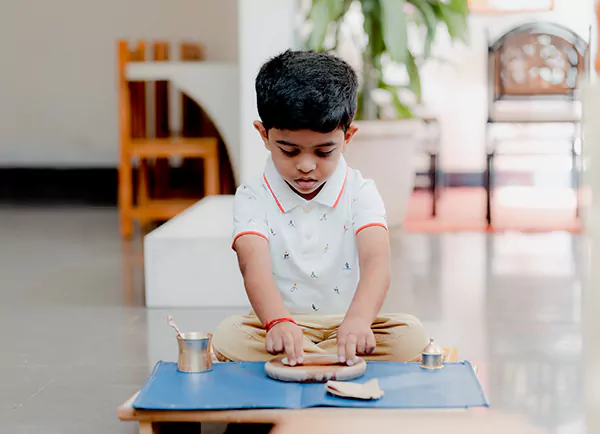
EXCERCISES OF PRACTICAL LIFE
Exercises of Practical life are the activities which we perform in our day to day life like dressing, dusting, sweeping, washing, etc. The children of three years have a strong attraction towards these activities. Through these, the children can take care of themselves, care for the environment, and learn courtesy and grace. In addition, Exercises of Practical Life improve the concentration of the children and gain control over their movements.
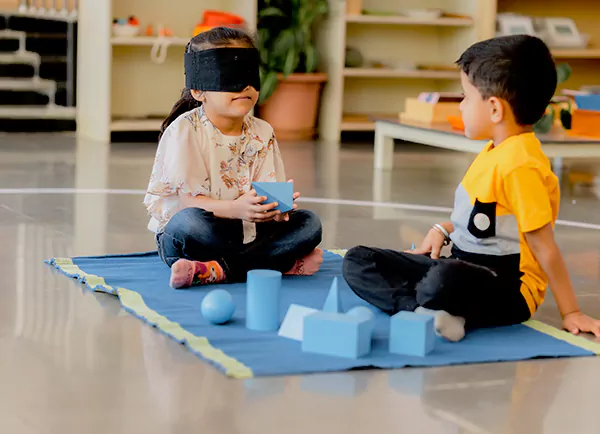
THE SENSORIAL
According to Dr. Montessori a human being has ten senses including the sense-of-pain. Apart from visual, hearing, taste, smell, touch, she recognises four more senses – muscular, thermic, baric and Stereognostic. The Sensorial Activities provide activities for each of the above nine senses and develop scientific thinking skills like observing, comparing and deciding.
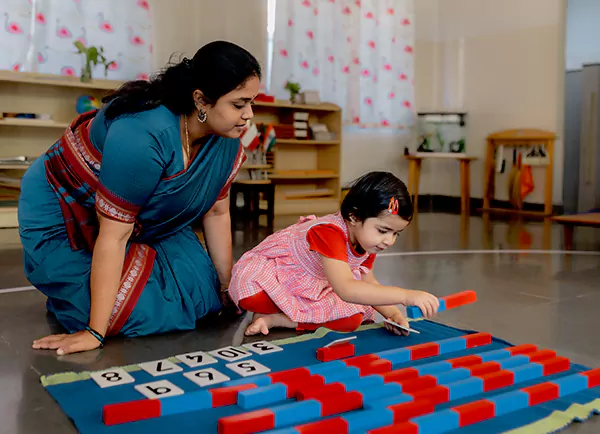
THE ARITHMETIC
By three and a half years, the child is no longer satisfied in knowing that something is more or less. The child now wants to know precisely by how much it is more or less, which is called awakening of ‘mathematical mind’. The child is introduced to numbers beyond 100, up to 9999, to the decimal system and meaning of the four arithmetical operations (addition, subtraction, multiplication and division) and the basic combinations around them.
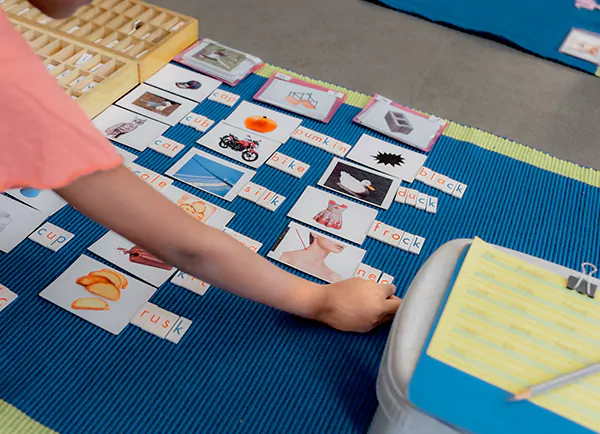
LANGUAGE
Language in a Montessori environment has a unique approach. Here, in contrast to the regular school, the child is helped to know that language is nothing but sounds. Each sound has a symbol. We use these symbols to express ourselves. This method develops the eagerness to write and read. Later on, the child is introduced to the fact that each word we speak has a function to perform in a sentence, and the sentence has a structure i.e. grammar.
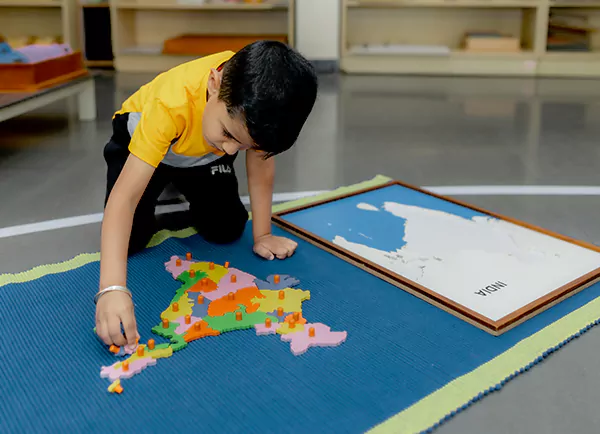
CULTURAL ACTIVITIES
Cultural activities expose the children to the basics of geography, history, botany and zoology, music, art and movement, which form the integral part of Montessori’s curriculum.
Please click th below links to know more about natural development of children https://aidtolife.org/about/index.html
https://montessori-ami.org/resource-library/questions-and-answers/
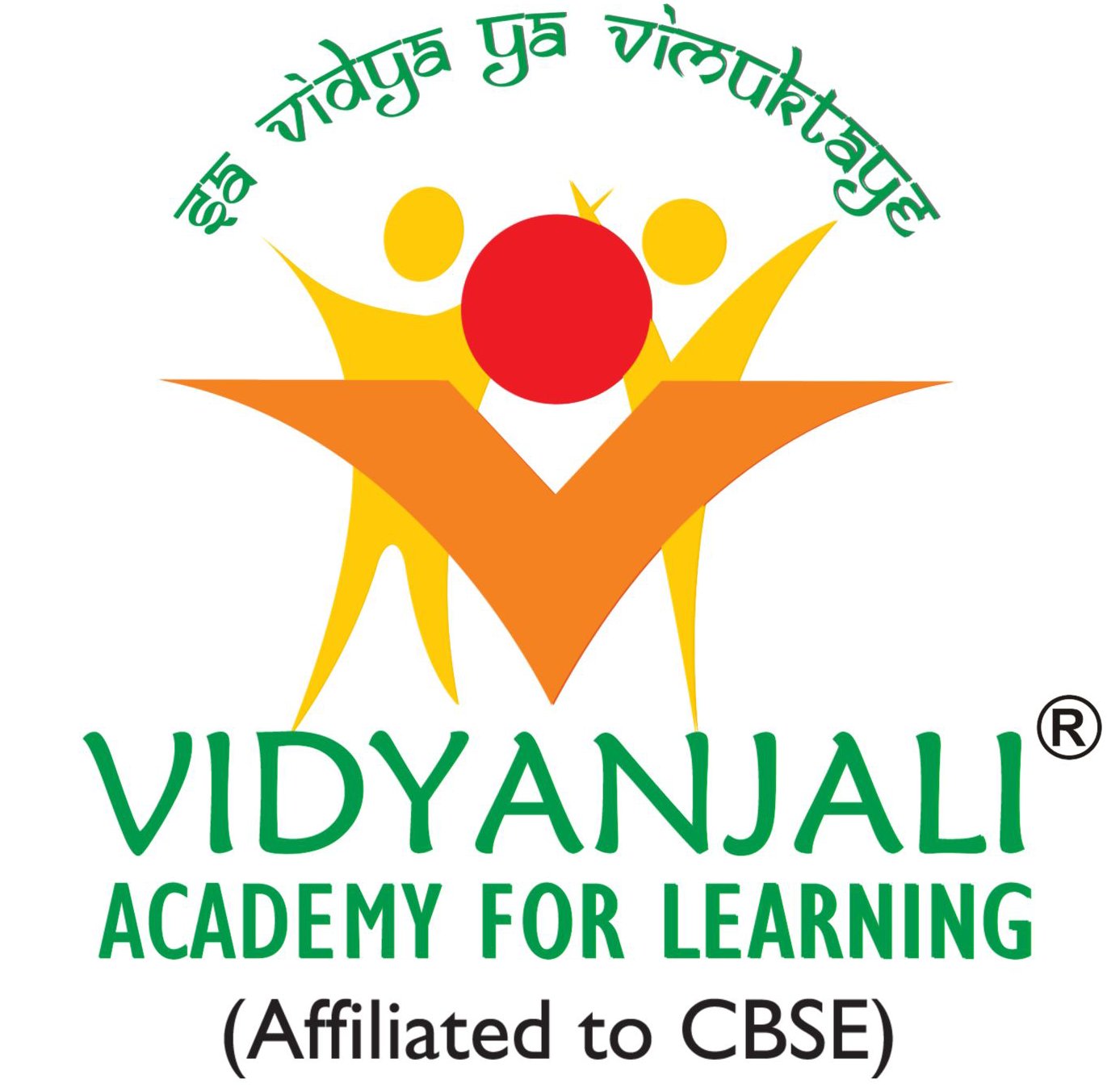


.webp)